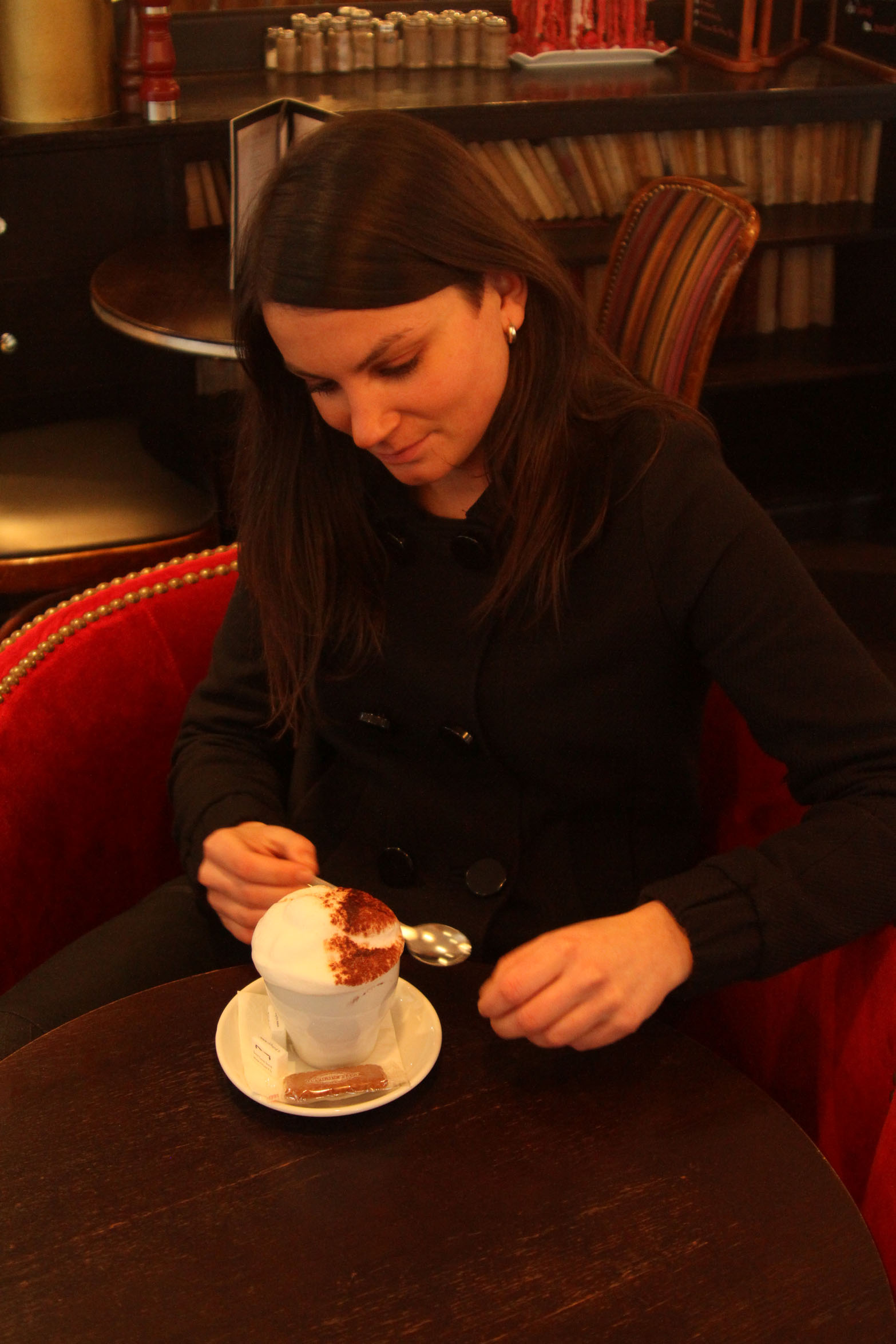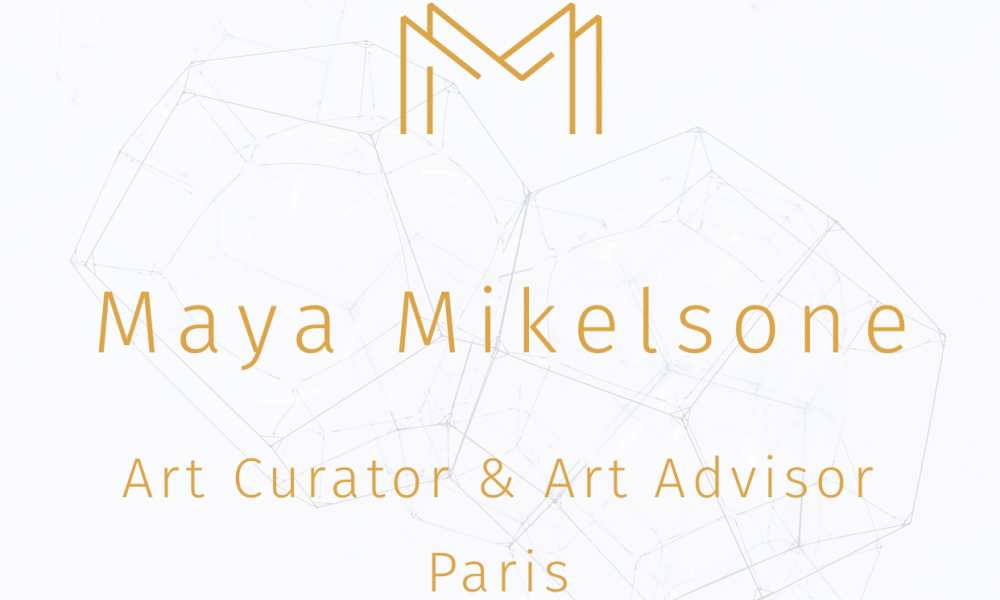Globalizācija, jaunās tehnoloģijas, tiešsaistes darījumi un kopējā lielāka mākslas pieejamība sekmē mākslas kolekcionēšanu. Iespējas un vēlme pirkt mākslu stimulē pieprasījumu pēc zinošajiem ekspertiem, kas var palīdzēt jebkurā pirkuma posmā. Mākslas konsultantam ir jābūt gan mākslas speciālistam, gan arī uzņēmējam un psihologam, lai saprastu tirgu un savu klientu. ArtLaw.club bija interesanta saruna ar Maiju Miķelsoni, Francijā dzīvojošu mākslas konsultanti, par viņas pieredzi, karjeru, vīziju un Francijas, kā arī ārvalstu, mākslas pircēju īpatnībām.*
*ArtLaw.club priekšvārds
Intervija tiek publicēta oriģinālvalodā
- Dear Maya, you are an art curator and an art adviser. This niche specialization requires strong background and high level of emotional intellect. What were the prerequisites for you to choose this specific field of practice? Were you dreaming of it years back when choosing your education or did it “crystallized” later on?
I was interested in art since my childhood and the it became stronger and deeper during my teenage years but I was also quite rational. My mother wanted me to become a diplomat because I had an inherent tolerance, sense of communication and global vision. I was struggling for a long time to understand what exactly is my place but I always knew that it will be related to art. In my early twenties I understood that I want to be an art curator and constructed my education accordingly. I chose philosophy of art instead of art history because I knew art history very well and wanted to go to the next level so philosophy of art seemed as appropriate intellectual base. Later, during my Master’s year I was tired of academic studies at Sorbonne and at the last semester we had an internship as option which I chose. For 6 months I did an internship at the legendary Yvon Lambert gallery and discovered my passion for art market. I have worked in few art institutions but I quickly realized that it’s not for me, though I appreciate this experience.
- It seems that you have Latvian heritage. How did you end up in France?
As I mentioned, I was prepared for diplomatic career so I started to learn French quite early. I finished Lycée français de Riga and it seemed natural to come to France for my studies, although I was considering to go to United States. After almost 15 years here, I am sure that this is the right place.
- What is there currently within the scope of your advice?
Trying to avoid speculations on the art market with young artists and finding works by underestimated important persons of art history. For me it’s incomprehensible that a work by Kaws can cost more than one by Frank Stella. At the same time, I am constantly looking for new discoveries.
- Are you working with private or corporate clients?
Until now, only private but there’s an upcoming corporate collaboration.
- What is a character sketch of a typical French and foreign collector? Do these characters differ?
French collectors are very different from others. They are very educated in arts and very often collecting is a family tradition so they grew up surrounded by art. Visiting museums, galleries, reading books and magazines about art is every day life for them so in most cases they don’t need an adviser.
New door is opening for me to Asia, these are different kind of collectors. Most don’t have art background but are very curious and quick learners (and buyers).
- Where do you get inspiration and fresh offers for your clients from – are these art fairs, (mainstream?) galleries, auctions, etc.?
It’s a very active research all the time by visiting galeries, art fairs, biennials, institutional shows,reading magazines, visiting artists studios, Instagram is a very important platform for contemporary art. I have discovered and afterwards visited some artist studios.
- Do you have a standardized offer or is it always a case-by-case scenario?
It can’t be standardized, it’s a very private approach depending on needs of the client. Some are just starting to step into collecting, some need an advanced collection managment. It is a close collaboration based on trust, discretion and confidentiality.
- Do you offer the legal advice (provenance check, title due diligence, transaction documents, etc.) as well or you outsource the legal issues?
I can provide full art services from advising, private sales to very practical side as shipment, insurance, collection inventory and managment. I am also surrounded and constantly working with other art professionals as experts specially when it comes to Modern art, I would never take the risk to propose an art work without being sure about authenticity, provenance, or if the work haven’t been stolen, Nazi looted or subject to any legal issues.
- Do you help in cataloguing and further promotion of the collections?
Yes, that is an important part to follow the works, not only to buy and sell. I am often contacted by curators from museums when they are preparing a show and looking for works by specific artist or theme.
- You are also offering broad specter of other art services, including shipment, installation, insurance, storage, art lending. Are you a control point for these services outsourcing them?
I am offering full tailored art services depending on needs of every client. Some have already their own providers but I can propose mine with who I am used to work with.
- How the modern technologies effect the art market and your work? Does introduction of the blockchain or online actions impact collecting preferences or transaction processes?
Of course, technologies influence art market as any other market. Online sales are growing every year and people trust more and more, as example, I have sold works on Instagram. Specially the young generation of collectors, they are very active online buyers.
Regarding the blockchain, I think it will influence art market in the future, it is too early to judge but it could influence significantly digital art and photography.
- What are the current trends in France with regard to the choice of artists, art movement, artistic taste? What are the overall tendencies in the market?
The art market in France is very special, it is very different than in New York, London or Hong Kong which are more market driven. The tendency here in last few years is a return of painting. There was a rejection of this medium for a long time coming already from art schools. If you go to the end of the year show at Beaux-Arts de Paris, you would rarely see paintings.
In general terms, Asia is becoming an important player in the art market and they are influencing the market of few artists such as Yayoi Kusama, Kaws or George Condo just to name few.
- What changes (if any) should we be ready for in the nearest years?
The closest change seems to be Brexit which creates an uncertainty at the moment but Paris will win a lot and will become more international. More globally, there will be a significant development of the new markets in Asia, Middle East, also Africa and India.

Attēls: ©Karlina Vitolina
Komentāri: 1
Bill
Oct 12, 2024 21:31
Investment is one of the best ways to achieve financial freedom. For a beginner there are so many challenges you face. It's hard to know how to get started. Trading on the Cryptocurrency market has really been a life changer for me. I almost gave up on crypto at some point not until saw a recommendation on Elon musk successfully success story and I got a proficient trader/broker Mr Bernie Doran , he gave me all the information required to succeed in trading. I made more profit than I could ever imagine. I'm not here to converse much but to share my testimony. I recovered all my losses and I invested $1000 and received a return profit of $10,500 within 1 week. Thanks to Mr Bernie I'm really grateful,I have been able to make a great returns trading with his signals and strategies .I urge anyone interested in INVESTMENT to take bold step in investing in the Cryptocurrency Market, he can also help you recover your lost funds, you can reach him on WhatsApp : +1(424) 285-0682 or his Gmail : [email protected] tell him I referred you

